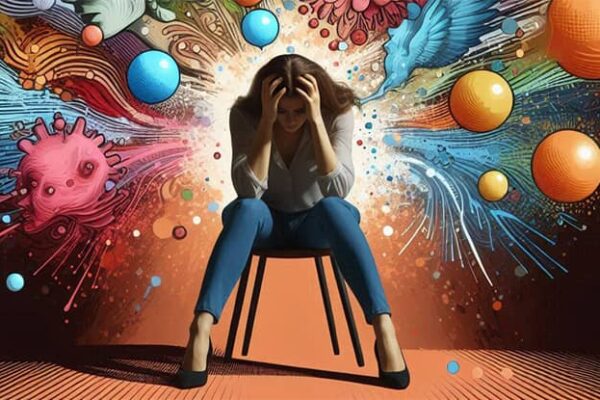Identity is a multifaceted concept encompassing a person’s self-perception, values, beliefs, social roles, and group affiliations. In psychology, this definition is often tied to the awareness of one’s uniqueness, which develops through interactions with others and the surrounding world.
Different approaches interpret identity in various ways. For instance, Erik Erikson, in his psychoanalytic theory, argued that identity evolves through life crises, while George Herbert Mead emphasized its formation through social interaction. Additionally, culture, language, and traditions play a significant role in shaping our sense of self.
Identity is crucial for individuals as it shapes their attitudes toward the world and themselves, influences life choices, professions, lifestyles, and relationships with others, and provides a sense of stability and wholeness.
In the digital age, the process of identity formation has undergone significant transformations. Digital technologies have opened up new avenues for self-expression. Social networks, blogs, video platforms, and other online resources allow individuals to present themselves to a vast audience, create alternative personas, and experiment with their role in the world. At the same time, these technologies have made identity more dynamic. A person can adapt to different platforms, change communication styles, and even develop different aspects of their “self” depending on the context.
However, digital technologies also pose certain challenges. Online spaces often become places where authenticity can be compromised, as the desire to meet audience expectations may lead to a crisis of self-awareness. The culture of comparison thriving on social networks lowers self-esteem, while algorithms limit the ability to see the world broadly. Furthermore, negative phenomena like cyberbullying can deeply harm self-perception.
Despite these challenges, the digital age opens up new perspectives for understanding identity. It raises important scientific questions: how technologies reshape our self-perception, whether it is possible to remain authentic in a fragmented digital world, and what practices promote a harmonious integration of the real and digital “self.”
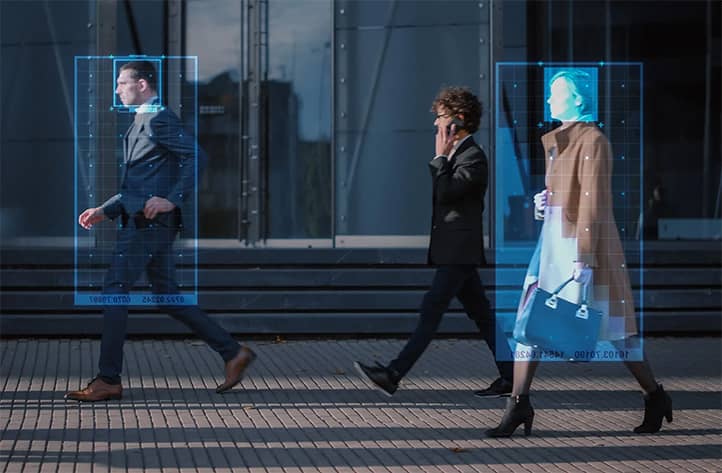
Theoretical Foundations of Identity
Identity is one of the central concepts in social and psychological sciences. It reflects how individuals understand themselves, their relationships with others, and their place in society. The formation of identity is a complex and multifaceted process that spans a lifetime.
Throughout history, scholars have sought to explain this phenomenon through various theoretical approaches. Classical theories, such as those by Erik Erikson, George Herbert Mead, and others, laid the groundwork for further research. Meanwhile, contemporary approaches, including studies of hybrid, gender, and digital identities, expand our knowledge by considering the impact of modern sociocultural and technological changes.
Overview of Classical Identity Theories
One of the most influential identity theories is Erik Erikson’s approach. In his psychoanalytic concept, Erikson emphasized the gradual development of identity through life crises. He believed that each stage of life is accompanied by a specific crisis, whose resolution determines subsequent self-definition. For example, during adolescence, basic identity is formed through questions like “Who am I?” and “What is my place in the world?” Unresolved questions can lead to an “identity crisis,” characterized by confusion and internal conflict.
George Herbert Mead also made a significant contribution by exploring identity through social interaction. He argued that self-awareness forms through the “looking-glass self” process—understanding how others perceive us. Mead viewed identity as comprising two aspects: the “I,” representing the inner, authentic self, and the “Me,” reflecting societal expectations. Thus, identity evolves constantly through the interplay between the internal and external worlds.
Other classical theories, such as those of Sigmund Freud and Carl Jung, revealed deeper aspects of identity. Freud focused on unconscious dimensions of the “self,” such as internal conflicts and repressed desires, while Jung believed that the collective unconscious, including archetypes, forms the foundational structure of identity.
Contributions of Modern Research to Identity Understanding
Modern identity research has significantly expanded the scope of classical concepts, accounting for dynamic changes caused by technological progress, globalization, and shifting social norms.
An important area of focus is hybrid identity, which examines the blending of cultural, ethnic, or professional aspects in self-definition. For example, in a world where an individual can simultaneously be a citizen of one country but work and interact with others globally, identity becomes particularly complex.
Contemporary psychology also addresses gender identity, which has become a subject of active discussion and research. Innovations in this area highlight the role of social factors in shaping gender roles, as well as an individual’s freedom to define their gender beyond traditional boundaries.
Another relevant area is the study of digital identity. In today’s world, people increasingly create their personas in the online space, influencing self-perception and interactions with others. This raises new challenges, such as the gap between the real and virtual “self,” reduced authenticity, and dependence on external validation.
Thus, modern research builds on classical theories to explain the basic mechanisms of identity formation while addressing its complexity in an ever-changing world. These studies emphasize the importance of considering sociocultural, gender, and technological contexts in the self-definition process, making the topic relevant and multifaceted.

Digital Age and Changing Perceptions of Identity
The development of digital technologies has significantly altered perceptions of identity, creating new opportunities for self-expression, communication, and social integration. Through the internet and social networks, individuals can not only shape their image in the real world but also create new “versions” of themselves online. This process impacts both self-awareness and how others perceive us.
In the digital age, identity becomes dynamic and multifaceted. People can present different aspects of their personality depending on the platform or context. For example, LinkedIn highlights professional achievements, while Instagram emphasizes lifestyle aesthetics. However, this also poses risks, such as a disconnect between the real “self” and the digital persona, potentially leading to an identity crisis.
Virtual Spaces: New Platforms for Self-Expression
Virtual spaces have become unique platforms for creativity and self-expression. Through blogs, social networks, online games, and video platforms, individuals can showcase their talents, opinions, or lifestyles. In such environments, they can experiment with social roles unavailable in real life.
This is especially significant during adolescence and young adulthood, when identity is actively forming. Online environments allow people to explore preferences, communication styles, and hobbies without fear of judgment. Additionally, digital platforms enable connections with like-minded individuals, regardless of geographical location, fostering social integration.
However, it is important to consider the flip side of virtual spaces. Sometimes, creating an idealized online persona can trigger feelings of inadequacy between one’s real life and the image they present. This may lead to emotional burnout or even depression.
The Role of Social Media in Identity Formation
Social media has become a key tool in the process of modern identity formation. It not only reflects but also shapes our perceptions of who we are. Through photos, posts, comments, and reactions, users display their interests, values, and lifestyles.
One unique feature of social media is the constant feedback loop. Likes, comments, and views act as a mirror through which individuals evaluate themselves. This creates a situation where external recognition begins to influence internal self-perception.
At the same time, social media fosters a culture of comparison. Constant access to “idealized” images of others can lower self-esteem and cause dissatisfaction with one’s life. This is especially relevant for youth, who often define themselves through external success and popularity in the online realm.
Another critical aspect is the influence of algorithms. Social media platforms tailor content to user interests, creating “information bubbles.” This can limit worldview, reinforce stereotypes, and reduce critical thinking, all of which impact identity formation.
The Concept of “Digital Self”: Online Persona vs. Real Personality
The “digital self” refers to the version of oneself created in the virtual space. It is often a simplified or idealized image that does not always align with the real personality. For instance, on social networks, individuals may emphasize positive aspects of their lives while ignoring challenges or flaws.
The disparity between the digital “self” and the real “self” becomes a source of internal conflict. Individuals may feel that their real lives do not meet the expectations they’ve set in the online space. This can lead to a loss of authenticity and a sense of isolation.
On the other hand, the digital “self” also has positive aspects. It allows individuals to express parts of their personality that are difficult to showcase in real life. For example, introverts may interact more freely with others in the virtual space.
In today’s world, harmonizing the real and digital “self” is a critical task. This requires recognizing that an online persona is merely one aspect of identity and not its core. Developing critical thinking and self-reflection can help avoid a disconnect between different facets of personality.
Thus, the digital age has significantly broadened the concept of identity, making it more dynamic and multifaceted. At the same time, it has introduced new challenges that require thoughtful reflection and adaptation.
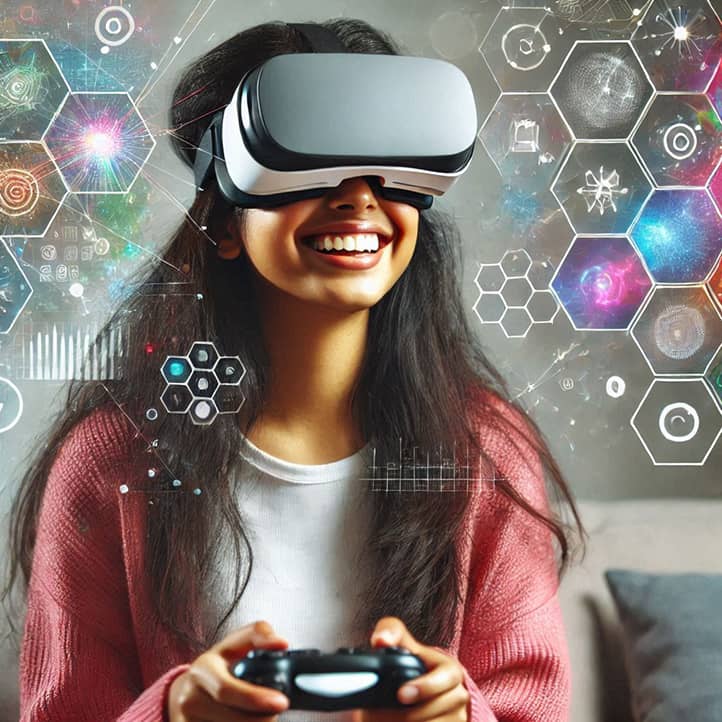
Modern Theories of Identity in the Context of Digital Technologies
Identity, as a socio-psychological phenomenon, has always been closely intertwined with the surrounding environment and the technologies shaping human life. With the advent of digital technologies, the process of self-determination and identity formation has undergone significant transformations. Technology has enabled individuals to create and interact with multiple self-representations across various contexts, opening new avenues for self-expression but also introducing new challenges.
Modern theories of identity place great emphasis on concepts such as hybrid, dynamic, and socially constructed identities. These notions reflect the profound changes brought about by digitalization, which affects how we perceive ourselves, interact with others, and define our place in the world.
This section examines key aspects of modern identity theories, focusing on their evolution in the context of digital technologies.
The Concept of Hybrid Identity: Bridging the Physical and Digital Worlds
Hybrid identity is a leading concept that reflects the merging of physical and digital aspects of the self. In today’s world, the boundaries between these two realms are becoming increasingly blurred. People spend a significant portion of their lives online: working, communicating, learning, and sharing ideas. This creates a unique identity that combines real and virtual dimensions.
For instance, a person might be reserved and introverted in real life while exhibiting boldness and expressiveness in the virtual space. This results in a synthesis that not only complements but also enriches both dimensions of identity.
However, this approach also presents challenges. For example, the idealization of the digital self may lead to feelings of internal conflict or a disconnection between different aspects of one’s personality. This phenomenon is particularly relevant among young people, who often associate their self-worth with virtual achievements such as likes or follower counts.
Dynamic Identity: How Technologies Redefine the Stability of the Self
In classical theories, identity was often viewed as a relatively stable structure formed over a lifetime. However, digital technologies have introduced a new perspective, making this process more dynamic.
Dynamic identity is characterized by constant transformation depending on context, platform, or circumstances. For instance, a person may exhibit one identity in professional online communities, another in social networks, and yet another in online gaming environments. This multifaceted nature enables adaptation to different settings but also raises questions about the notion of authenticity.
Modern technologies facilitate identification with multiple groups simultaneously, which can lead to fragmented identities. At the same time, they offer opportunities for flexible self-reinvention, opening new horizons for self-discovery. This approach enables deeper self-understanding but requires a high level of self-reflection to harmonize different aspects of the self.
Social Constructivism and the Role of Communities in Shaping Identity
Social constructivism emphasizes that identity is not only an individual phenomenon but also a socially constructed one. In the context of digital technologies, this perspective gains particular significance as online communities become a powerful force in shaping the self.
Modern social networks, forums, and other platforms bring people together worldwide based on shared interests, values, or beliefs. Within such communities, individuals can identify themselves as part of a larger group, which provides a sense of support and belonging.
However, such interactions can also have negative consequences. Communities sometimes impose norms or ideals that may restrict individuality and cause internal conflict. For example, many communities establish a specific “standard” of behavior or opinions, deviation from which can lead to exclusion or criticism.
Additionally, digital platforms foster the emergence of new forms of identity that exist solely in virtual environments. For instance, in online games, users create avatars that often bear little resemblance to their real selves but nonetheless serve as a vital part of their identity.
Thus, social constructivism in the digital age highlights the interaction between personal and collective factors in identity formation. This interplay is becoming increasingly complex but also opens new opportunities for self-development and self-discovery.
Modern identity theories in the context of digital technologies demonstrate how multifaceted and dynamic the process of self-determination has become. Hybrid identity, dynamism, and the role of communities in shaping it reflect the complexity of this phenomenon in the digital age. Understanding these concepts helps better adapt to the challenges of the modern world while preserving authenticity and a balance between the real and virtual self.
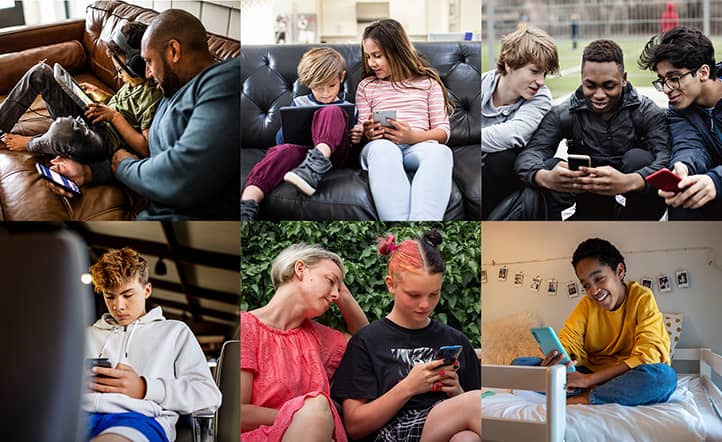
Challenges of the Digital Era for Identity
The digital era has brought countless opportunities for self-expression, socialization, and development. However, alongside these benefits, new challenges have emerged, influencing the process of identity formation and maintenance. The online space, where anyone can construct a desired image of themselves, creates an illusion of freedom while also posing risks of losing authenticity, becoming dependent on external validation, and being influenced by algorithms.
One key aspect is the growing pressure from the culture of comparison, actively reinforced by social media. People constantly encounter idealized representations of others, which impacts their self-esteem and perception of personal value. Furthermore, the online space creates conditions for crises such as cyberbullying, the necessity of digital detox, and the negative effects of algorithms that limit freedom of choice.
The Issue of Authenticity in Online Presentations
The online space offers individuals a unique opportunity to create various self-images, but it also carries the risk of losing authenticity. Many social media users consciously or unconsciously strive to present an “ideal” version of themselves, often far removed from reality. This may reflect a desire to meet societal expectations, gain approval, or even avoid criticism.
The problem of authenticity lies in the fact that idealized online personas often become a source of internal conflict. A person may experience dissonance between who they truly are and who they aspire to appear as in the virtual world. This can lead to stress, reduced self-esteem, and, in some cases, even depression.
For example, users might project an image of a successful, happy individual by sharing only the best moments of their lives. However, this approach does not reflect real-life challenges and failures, which are a part of everyone’s life. As a result, not only does it create unrealistic perceptions of others, but it also distorts one’s self-perception.
The Culture of Comparison and Its Impact on Self-Perception
The culture of comparison is one of the most destructive effects of the digital era on identity. Social media has become a platform where users compare their lives to the “ideal” images of others. This particularly affects young people, who often determine their worth based on external markers of success such as popularity, likes, or follower counts.
The negative impact of the culture of comparison manifests in lowered self-esteem and dissatisfaction with one’s own life. For example, seeing others travel, achieve professional success, or possess “ideal” appearances, an individual may feel inadequate or “unsuccessful.”
Another aspect of this problem is the imposition of beauty standards and lifestyles. Social media algorithms often reinforce such stereotypes by promoting content aligned with popular ideals. This creates additional pressure on individuals, who feel compelled to conform to these standards even if they contradict their personal values or capabilities.
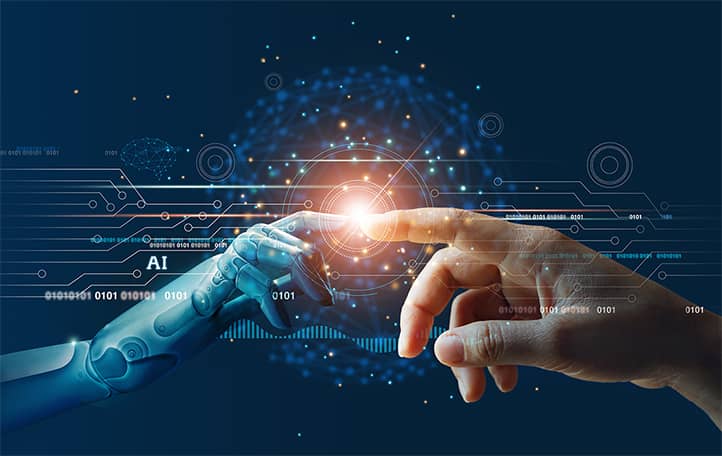
The Possibilities of Digital Technologies in Self-Discovery
Digital technologies have significantly transformed how we understand ourselves and interact with the world. They have opened unprecedented opportunities for self-discovery, learning, creativity, and social interaction. In the virtual space, individuals can explore their interests while engaging with cultures, communities, and people that broaden their worldview.
Today, digital platforms offer numerous resources for personal growth and mental health support. They have become a space where everyone can find help, gain knowledge, and even practice self-therapy. These opportunities are particularly valuable in a world where the pace of life constantly accelerates, and challenges become increasingly complex.
New Pathways to Self-Discovery through Online Education
The internet has become a powerful tool for self-discovery. Online courses, masterclasses, and webinars enable individuals to acquire new knowledge and skills. Platforms like Coursera, edX, and Udemy offer thousands of courses, helping people better understand their interests and aspirations. Online education has made knowledge accessible to millions of individuals who previously lacked access to traditional sources of learning.
Blogs and social media have also become spaces for expressing thoughts and reflections. People use these platforms to share their experiences, contemplate life values, or analyze events. This not only fosters a deeper understanding of oneself but also allows for feedback from others, offering new perspectives on personal experiences.
Creativity in the digital world serves as another pathway to self-discovery. Tools for creating videos, music, illustrations, and other forms of art are now accessible even to beginners. This enables individuals to experiment, develop their talents, and uncover new aspects of their personalities. For instance, platforms like Canva or Adobe Express allow anyone to create unique visual content that reflects their individuality.
Positive Impact on Interaction with Diverse Cultures and Communities
Digital technologies have greatly expanded opportunities for intercultural communication. Social networks, forums, and online communities bring people from all over the world together, enabling them to share experiences, traditions, and values. Interacting with representatives of different cultures fosters tolerance, empathy, and an expanded worldview.
For example, platforms like Reddit provide users with opportunities to join thematic communities where they can share knowledge and learn about various aspects of life. Participation in such communities not only helps individuals gain new information but also creates a sense of belonging to a global network.
Virtual spaces also allow people to explore diverse cultural practices through music, films, literature, or online courses. Platforms like YouTube, for instance, offer countless documentaries and lectures that deepen understanding of different traditions. This is especially important for forming a multifaceted identity that integrates various cultural elements.
The Role of Digital Platforms in Supporting Mental Health
Digital technologies play a significant role in supporting mental health. Many platforms offer resources for self-help, psychotherapy, or simply a chance to find support among like-minded individuals. For example, apps like BetterHelp or Talkspace provide online consultations with professional psychologists.
Social networks create opportunities for forming support groups where people can share their experiences and receive emotional support. Facebook or Telegram communities, for instance, often bring together individuals facing similar issues, such as anxiety, depression, or post-traumatic stress disorder. Participants in these groups find understanding and support, positively impacting their emotional well-being.
Additionally, meditation and motivational apps like Headspace or Calm offer tools to combat stress and develop mindfulness. These apps help users manage their emotions, better understand themselves, and maintain mental balance in a fast-paced world.

Conclusion
In the modern world, personal identity undergoes complex transformations under the influence of digital technologies. Contemporary theories of identity help us better understand this process and evaluate how the virtual environment reshapes the concept of the “self.” In the digital age, identity becomes multifaceted, encompassing both real and online aspects, opening new opportunities for self-expression while presenting numerous challenges.
Digital platforms not only reflect personality but actively shape it. Social networks, online communities, and creative tools enable individuals to experiment with roles, connect with other cultures, form new social bonds, and explore hidden facets of their identity. However, excessive reliance on the virtual space and challenges such as authenticity, comparison culture, or the influence of algorithms can lead to emotional exhaustion and a crisis of self-awareness.
To foster authenticity and maintain a healthy identity, it is essential to balance real and digital life. Recommendations include limiting time on social media, engaging in online activities that promote skill development, and selecting platforms that positively impact mental health. It is also crucial to adopt a critical approach to information found online and build emotional resilience against the negative effects of the digital space.
Future research in this field should explore the deeper connections between technology and identity. Particularly intriguing is how emerging technologies like artificial intelligence and virtual reality will shape the identities of future generations. The role of communities and cultural exchange also deserves attention, as the digital space continues to evolve, becoming increasingly integrated into our daily lives.
Ultimately, the digital era represents a significant milestone in redefining identity. It opens new horizons for self-discovery while requiring a conscious approach to technology use to avoid risks and maintain harmony between real and virtual worlds.


